Search
Remove Ads
Advertisement
Summary 
Loading AI-generated summary based on World History Encyclopedia articles ...
Search Results
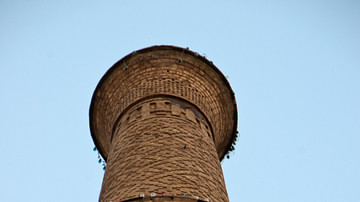
Article
The Style & Regional Differences of Seljuk Minarets in Persia
Under the Seljuk rule, Persia gained a period of economic and cultural prosperity. The innovative techniques of the Seljuk period and style in architecture and the arts had a strong influence on later artistic developments. Seljuk art is...

Image
The Seljuk Sultanate of Rum, c. 1200
This map illustrates the rise and growth of the Seljuk Sultanate of Rum (the name "Rûm" was a synonym for the medieval Eastern Roman Empire and its people, a usage that continues in modern Turkish. It originates from the Aramaic and Parthian...
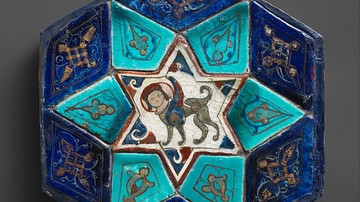
Image
Seljuk Hexagonal Tile
Hexagonal tile ensemble with sphinx (c. 1160-1170 CE), taken from a fallen citadel-palace in Konya, the capital of the Seljuk Sultanate of Rum. (Metropolitan Museum of Art, New York)
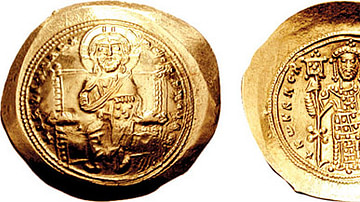
Definition
Constantine X Doukas
Constantine X Doukas was the ruler of the Byzantine Empire from 1059 to 1067 CE. During his reign, the Byzantine Empire was attacked by emerging enemies on all sides, including the Normans in Italy and the Seljuk Turks in Armenia and Anatolia...
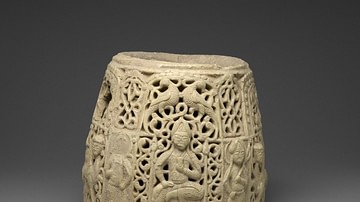
Image
Seljuk Water Jug
Made of unglazed ceramic, this top portion of a water jug depicts two Seljuk guards flanking a seated figure, possibly a sultan. Dates to the late 12th to early 13 century CE. Measures approximately 30 x 36 x 36 cm. (Brooklyn Museum, New...
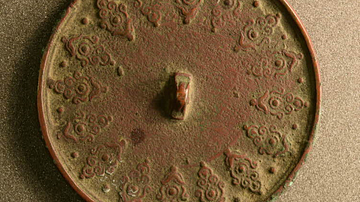
Image
Back of Seljuk Mirror
Cast in bronze with a floral motif, this back of a Seljuk mirror dates to the 12th-13th century CE. Made in what is now Turkey and acquired in Istanbul. (British Museum, London)
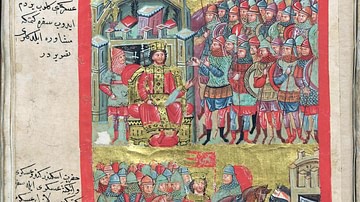
Definition
Empire of Trebizond
The Empire of Trebizond was an offshoot of the Byzantine Empire that existed from 1204 to 1461 CE, ruled by the Megas Komnenos Dynasty, descendants of the Komnenos Byzantine emperors. The Empire of Trebizond has been far less researched than...
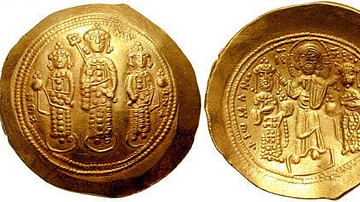
Definition
Romanos IV Diogenes
Romanos IV Diogenes ruled the Byzantine Empire from 1068 to 1071 CE. He was a military emperor, and his policies and campaigns served to shore up Byzantine defenses against the Seljuk Turks. However, in the aftermath of the Byzantine defeat...
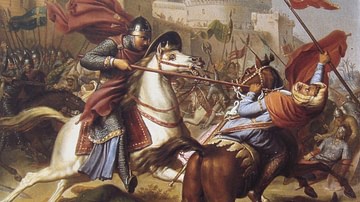
Definition
First Crusade
The First Crusade (1095-1102) was a military campaign by western European forces to recapture the city of Jerusalem and the Holy Land from Muslim control. Conceived by Pope Urban II following an appeal from the Byzantine emperor Alexios I...
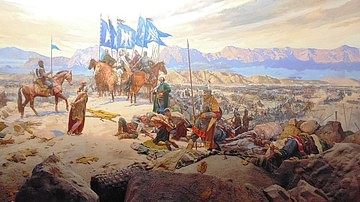
Article
Battle of Manzikert
The Battle of Manzikert (Mantzikert) in ancient Armenia in August 1071 CE was one of the greatest defeats suffered by the Byzantine Empire. The victorious Seljuk army captured the Byzantine emperor Romanos IV Diogenes, and, with the empire...